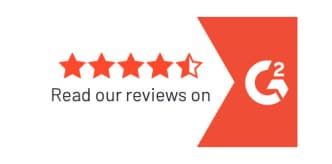The retirement plan industry is currently experiencing significant changes with a focus on the small market space. As traditional defined benefit plans have dwindled and defined contribution plans like the 401(k) have risen to prominence, savers are looking for new solutions that give them the best of both worlds. Cash balance plans are a new type of defined benefit plan, emerging as the hybrid that the market is looking for. They boast the higher contribution limits of defined benefit plans and the straightforwardness of defined contribution plans. This makes them easier to understand and provides some flexibility to control plan costs.
Unlike traditional pension plans, where benefits are defined as a monthly payment upon reaching Normal Retirement Age (NRA), cash balance plans define benefits as a hypothetical account balance paid upon reaching NRA. Employees are credited each year with both a “pay credit,” which is either computed based on a percentage of the employee’s wages or a fixed dollar amount, and an “interest credit,” which is a guaranteed rate as defined by the plan (usually 4% – 5%). The performance of the plan affects the calculation of the contributions needed to meet the obligation, and it is the plan sponsor — not the participants — that bear the risk.
Advantages of Cash Balance Plans for Small Businesses
- Tax Efficiency: Business owners and Highly Compensated Employees (HCEs) can receive substantial annual contributions — much larger than they can using a 401(k) — which grow tax-deferred, yielding significant benefits. This is especially valuable for high income earners and sole proprietors needing to decrease their tax burden.
- Additional Employee Benefits: When owners offer a cash balance plan to employees alongside a 401(k), they make the retirement benefits package much more appealing, which is especially beneficial to small business owners working to attract and retain talent.
- Legal and Insurance Protection: Cash balance plans are protected under ERISA law, which shields them from bankruptcy and creditors. For most employers, the benefits are insured by the Pension Benefit Guaranty Corporation (PBGC).
- Plan Design Flexibility: Small businesses can design them to meet their unique needs, including varying contribution levels for different employees. Often, cash balance plans are combined with 401(k) profit-sharing plans to further maximize savings.
It’s easy to see why cash balance plans have increased in popularity, especially among small businesses, as they allow owners to accelerate retirement savings while reducing tax liabilities. Meanwhile, cash balance plans tap into business cash flow, benefiting both owners and employees.
Is a Cash Balance Plan Right for Every Small Business?
Cash balance plans can be very beneficial for small businesses, but they’re not right for some. Consider these factors when making your decision.
- Complexity and Cost: Setting up and maintaining a cash balance plan can be complex and costly. Small business owners often lack the resources to hire the legal, financial and HR professionals needed to navigate the requirements associated with these plans. A technology enabled provider such as 401GO is able to overcome these issues.
- Employee Demographics: Younger workers tend not to stay long at any one job, and this is even more likely to be true when employed by a small business. They are less portable than 401(k) or IRA plans, as payouts are done annually when the plan reporting is prepared. The lack of ready access may make cash balance plans less attractive to younger workers.
- Cash Flow: These plans require consistent funding. Businesses in industries that are more volatile, seasonal or more likely to confront limited cash flow may find it difficult to contribute consistently. Plan sponsors may incur penalties until minimum funding requirements are met.
- Business Size: Although cash balance plans benefit small businesses, they are most effective for businesses with stable revenue streams. Very small or highly volatile businesses may not find them advantageous.
Who Can Help Small Businesses and their Advisors Explore Cash Balance Plans?
401GO is the retirement plan provider optimized for small businesses. We leverage technology to make designing and building business-sponsored retirement plans fast and affordable, whether it’s a solo plan, 401(k), 403(b), or a cash balance plan.
Our technology and flexible pricing make it easy for financial advisors to get their small business clients into cash balance plans quickly and profitably. If you’re a seasonal financial advisor in this space or brand new to the plan world, let us share how our cutting-edge technology and award-winning service model, able to help your small business owner clients take advantage of this exciting but underutilized plan design.



